 The size of Learning & Development (L&D) industry, currently at USD 3.5 billion, is expected to treble in the next two years due to growing demand for experienced professionals, according to global talent management firm DDI.
The size of Learning & Development (L&D) industry, currently at USD 3.5 billion, is expected to treble in the next two years due to growing demand for experienced professionals, according to global talent management firm DDI.
“In reference to L&D, India is a very sophisticated market as knowledge is highly respected. However, there is a huge dearth of talented professionals, especially at the front line levels,” DDI senior vice president, international operations, David Tessmann-Keys told PTI here.
“But it is in the right path and is expected to triple in current size, which is at USD 3.5 billion, in the next two years,” he said.
L&D is about selecting the right human capital required for a particular business, recognising early the leadership potential and enhancing it for future leadership positions.
In overall scheme of things, India presently stands at par with Mainland China in overall L&D spend among emerging nations, though it is way below the developed economies.
“However, things are changing in India rapidly due to dynamic market conditions…it may outstrip China soon and also the developed countries after it triples the current L&D spend,” Tessmann-Keys said.
Amongst the various sectors which are making extensive use of L&D and also spending considerable amount on it are IT, BPO, technology, banking and the financial sector, he said adding that the concept is emerging in the family run conglomerates like Reliance.
However, he added, there is a lot needed to be done in general manufacturing segment that lacks strong leadership.
L&D in India is strong at senior and the mid level, however, the front line especially employees with just few years of experience are the weak link, Tessmann-Keys said.
“There is too much focus on technical competency, so developing leadership skills is taking a back seat,” he added.
The companies should create programmes that specifically focuses on high-potential employees, he said.
“Ensure that these high-potentials are given distinct programmes that address needs and help keep them engaged with the organisation and sustaining long-term growth,” he said.
This will help Indian businesses which compete with organisations globally, with the same savvy and ability to influence key decision makers as their counterparts from around the world.
Source: PTI
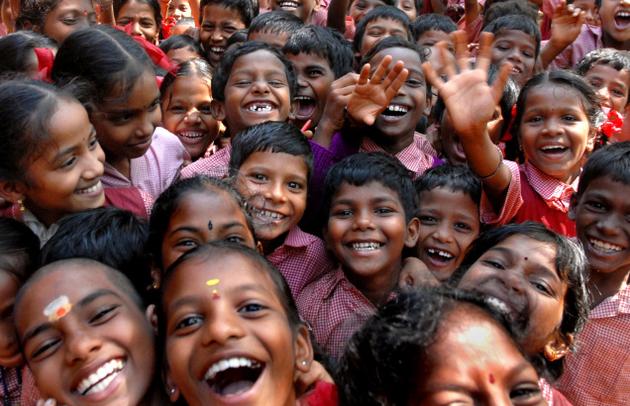 f education borne by those from economically backward sections, for getting their wards educated in the self-financing schools affiliated to the CBSE and ICSE boards.
f education borne by those from economically backward sections, for getting their wards educated in the self-financing schools affiliated to the CBSE and ICSE boards.







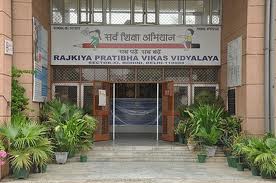
 Blackboards giving way to digital screens, pens being replaced with keyboards and notebooks with memory cards in classrooms.
Blackboards giving way to digital screens, pens being replaced with keyboards and notebooks with memory cards in classrooms.
 The size of Learning & Development (L&D) industry, currently at USD 3.5 billion, is expected to treble in the next two years due to growing demand for experienced professionals, according to global talent management firm DDI.
The size of Learning & Development (L&D) industry, currently at USD 3.5 billion, is expected to treble in the next two years due to growing demand for experienced professionals, according to global talent management firm DDI.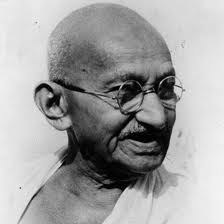
 DVDs of films like ‘Gandhi’ and ‘The making of Mahatma’ will be distributed in schools affiliated to Central Board of Secondary Education (CBSE), the Rajya Sabha has informed today.
DVDs of films like ‘Gandhi’ and ‘The making of Mahatma’ will be distributed in schools affiliated to Central Board of Secondary Education (CBSE), the Rajya Sabha has informed today.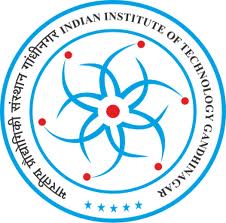
 The Indian Institute of Technology, Gandhinagar, will establish a centre for research and development (R&D) on archaeology with a view to facilitate protection of the national heritage.
The Indian Institute of Technology, Gandhinagar, will establish a centre for research and development (R&D) on archaeology with a view to facilitate protection of the national heritage.
 The Task Force formed by the Andhra Pradesh government to check the facilities and quality of education imparted in professional colleges like engineering would begin its work soon.
The Task Force formed by the Andhra Pradesh government to check the facilities and quality of education imparted in professional colleges like engineering would begin its work soon.
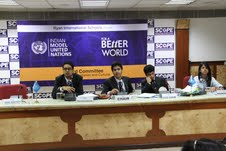
 Ryan International Group of Schools has organised INMUN 2012, which saw participation of 800 delegates. Eight hundred aspiring delegates from various parts of the world resolve to find the best way forward to peace and progress through dialogue and discussions at the 12th Indian Model United Nations (INMUN) 2012 organised by Ryan International Group of Schools. INMUN 2012 is being held between August 23 and August 25, 2012. The theme for INMUN 2012 is ‘For a Better World’.
Ryan International Group of Schools has organised INMUN 2012, which saw participation of 800 delegates. Eight hundred aspiring delegates from various parts of the world resolve to find the best way forward to peace and progress through dialogue and discussions at the 12th Indian Model United Nations (INMUN) 2012 organised by Ryan International Group of Schools. INMUN 2012 is being held between August 23 and August 25, 2012. The theme for INMUN 2012 is ‘For a Better World’.
 Punjab government has upgraded over 200 middle schools to secondary schools in deficit areas with a view to achieve Universalisation of Secondary Education (USE) in Punjab
Punjab government has upgraded over 200 middle schools to secondary schools in deficit areas with a view to achieve Universalisation of Secondary Education (USE) in Punjab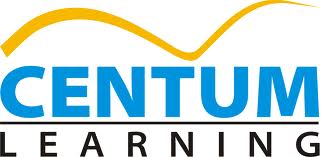
 The Bharti group has sold off its group company Centum Learning to Everonn Education and made its exit from the education business.
The Bharti group has sold off its group company Centum Learning to Everonn Education and made its exit from the education business.











